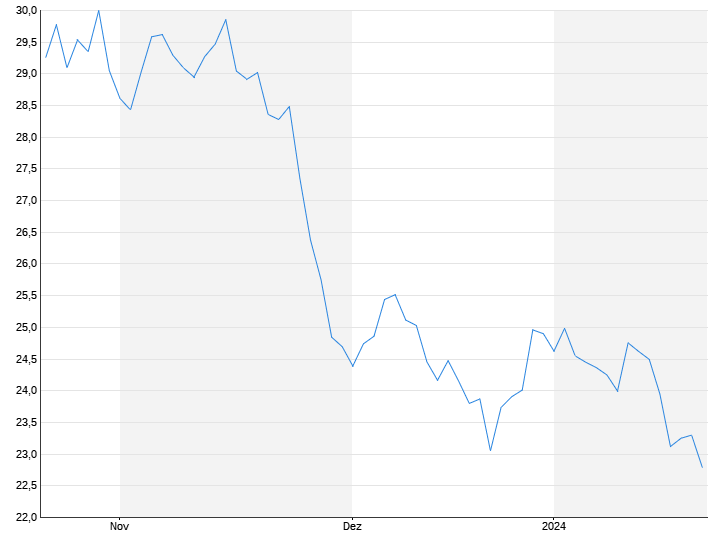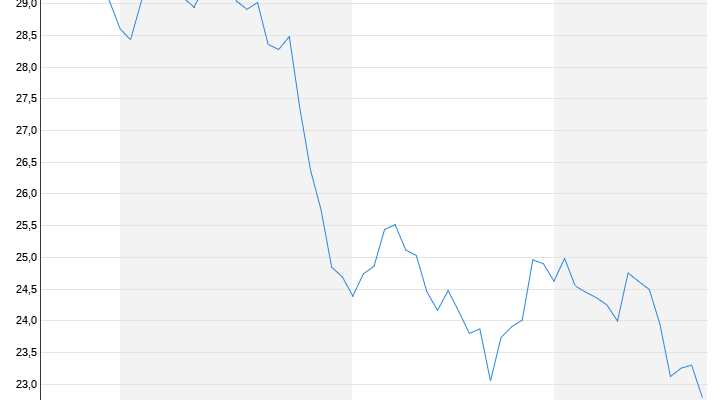Electric car power from China
This is behind BYD’s success
January 22, 2024, 2:56 p.m
Listen to article
This audio version was artificially generated. More info | Send feedback
BYD has even overtaken Tesla in the domestic electric car market. In contrast, there are only a few cars from the Chinese company on Germany’s roads. But that could change soon.
When Wang Chuanfu founded his small battery company in Shenzhen, China’s streets were still humming with dirty CO2 emitters. Almost 30 years later, more and more electric cars are buzzing through the cities. Many of them have a logo with three letters: BYD. The company initially built cell phone batteries, but the southern Chinese company has been in the car business since 2003 and has now become the largest electric car manufacturer in the world’s most important vehicle market. With more than 520,000 electric cars sold in the fourth quarter of 2023, Wang’s group even pushed the US leader Tesla off the podium worldwide. However, over the year, the Americans were still ahead.

The news stunned the industry. The US electric car pioneer under Elon Musk sold 484,507 cars to end customers in the same period. In the domestic US market, where BYD is not represented and would face high import duties, Tesla remains number one in electric cars.
But what is behind BYD’s success? The brand produces many parts itself and sells its models cheaply in different segments, thereby reaching many customers. Tesla and other electric car manufacturers, on the other hand, tried to get customers through the expensive premium range. These brands did not want to enter the middle and lower segments because the price competition there is very high, says industry expert Zhong Shi. However, BYD started there and, according to the analyst, is the only brand that can fully cover these segments. In China, for example, BYD offers new cars starting at around 10,000 euros.
An important advantage is the batteries – the most expensive individual component in an electric car. Because the Shenzhen-based company produces these themselves, they maintain cost control because other companies have to rely on suppliers, as Zhong explains. “BYD’s own batteries are better than any competitor’s, the cost is lower, and the quality is not bad,” he says.
Tesla buys from BYD
Others are also trying to build batteries themselves, but BYD has a knowledge advantage there. BYD battery customers include Tesla and Toyota. Beijing’s subsidies to the industry also helped BYD save taxes, buy land cheaply and hire cheap labor.
New competitors are tech companies. Xiaomi and Huawei built their own electric car models or, in the case of Huawei, a brand through collaborations with other companies. According to industry expert Ferdinand Dudenhöffer, today’s car companies could become pure car manufacturers that only assemble vehicles, while the software important for the car comes from the tech companies. “It looks like we are witnessing the biggest transformation in the industry,” explained Dudenhöffer.
Europe’s largest car manufacturer, Volkswagen, is also feeling the effects of BYD shaking up the Chinese market with low prices. For decades, Wolfsburg was ahead in China. This year, BYD outpaced the Germans with its rapid growth, also because their electric cars like the ID.3 were initially not well received in China. The result: VW had to significantly reduce the prices of the ID.3 in order to boost sales.
CEO Oliver Blume actually wanted to forego large-scale discounts in favor of returns. However, before the price reductions, picky Chinese buyers preferred domestic brands, also because they offered them more when it came to internet connection in the car. The ID.3 is currently available in China for the equivalent of around 20,800 euros. In Germany, the basic version of the car costs around 40,000 euros.
The Chinese are coming to Europe
However, China alone is not enough for BYD, which incidentally stands for Build Your Dreams. The Chinese have been trying to get their foot in the door abroad for a long time – including in Germany. It’s not easy for them. In North America, the second-largest car market, high tariffs of 25 percent and the US government’s Inflation Reduction Act regulations are preventing the Chinese from competing with US brands.
But they are on their way: Last week the “BYD Explorer No. 1” set sail. The cargo ship chartered by BYD was scheduled to stop in Shenzhen to load 7,000 cars and take them to Europe.
There are hardly any BYD cars in Germany so far. According to the Federal Motor Transport Authority, 3,438 BYD vehicles were newly registered from January to November 2023 – with almost 470,000 purely electric cars in total during this period. “I think Germany is not yet a main market for BYD,” says Zeng Zhiling from the Shanghai consulting firm LMC Automotive Market Consulting. The focus is more on Southeast Asia and South America.
In the EU, Brussels’ anti-subsidy investigation also threatens to ruin business for Chinese electric car manufacturers. The magic word is: localize. BYD, like Volkswagen in China, must relocate its production to Europe, says expert Zhong. The Chinese are currently building a factory in Hungary, which could open the door to the EU market.
BYD could perhaps soon be expected on the German market. But according to Zhong, the Chinese still have homework to do: BYD’s products are good, but the company doesn’t have the necessary knowledge to produce cars for the international market. Their approach to the brand and their ability to connect with a culture abroad have always been lacking, says Zhong.
